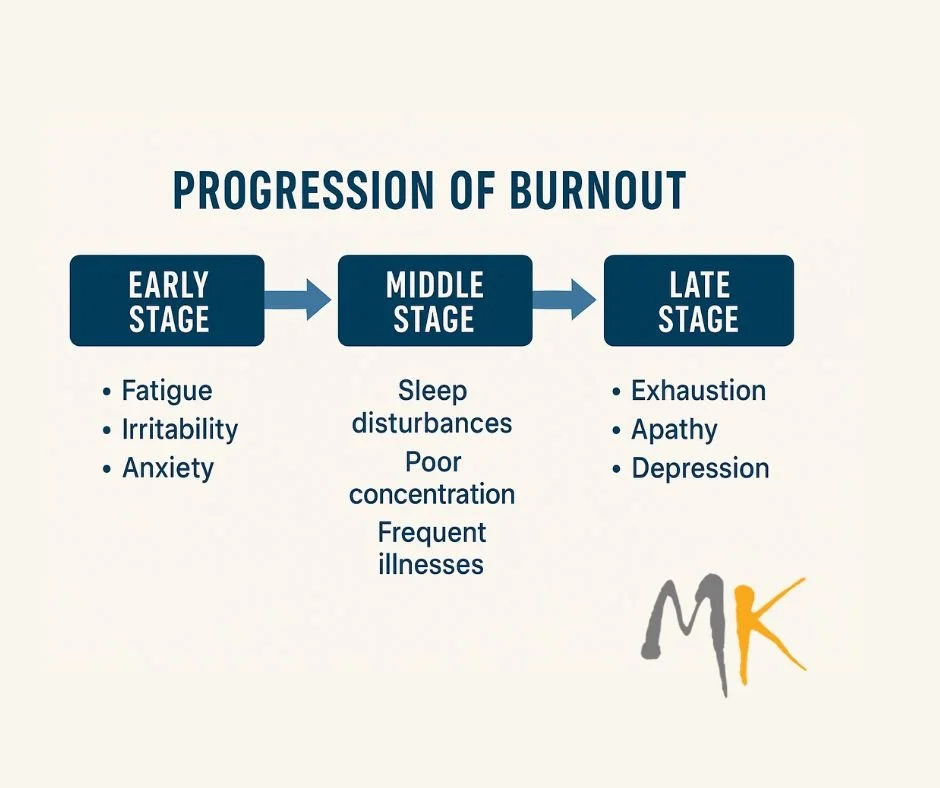Is Your Burnout Breaking Your Hormones?
Signs, Symptoms, and Real Fixes That Work
You were fine… until you weren’t.
At first it was just fatigue. Then the brain fog crept in. Then the mood swings. And suddenly, everything feels harder than it used to—especially being you.
If you’ve been told “your labs look normal,” but you feel anything but normal, you’re not alone.
What most women don’t realize is this:
Burnout is the bridge between stress and hormone imbalance.
And if it’s left unchecked, it quietly unravels your body over time.
What is Burnout, Really?
Burnout isn’t just about “feeling tired.” It’s your body telling you: I can’t keep up anymore.
It starts in the adrenal glands those walnut-sized stress centers at the tops of your kidneys that pump out cortisol to help you stay alert and resilient. But over time, stress wears them down.
As cortisol dysregulates, it drags other hormones with it especially estrogen, progesterone, and thyroid hormones.
The result?
You’re overwhelmed. Unmotivated. Bloated. Foggy. And just trying to get through the day.
The 3 Phases of Burnout And How They Hijack Your Hormones
Burnout happens in stages. Here’s how to tell where you are:
Phase 1: Wired & Overachieving
You’re on fire—until you’re not.
Hormones: High cortisol, estrogen rising, progesterone stable or declining
Common signs:
Racing thoughts
Jittery energy
Trouble falling asleep
PMS creeping in
Clenched jaw, headaches
Craving salty snacks or caffeine
Phase 2: Cracks in the System
You’re still functioning but your body’s compensating, and symptoms are showing.
Hormones: Cortisol dysregulated, estrogen dominance, progesterone dropping
Common signs:
Chronic fatigue
Brain fog
Digestive issues
Mood swings
Mid-cycle spotting
Waking at 2–4am
Craving sugar or comfort foods
Phase 3: Flatlined & Disconnected
You’re exhausted—and nothing helps.
Hormones: Cortisol low, estrogen/progesterone depleted
Common signs:
Extreme fatigue
Depression or apathy
No period or irregular cycle
Muscle aches, pain sensitivity
Low motivation, low mood
Feeling detached or numb
How Burnout Breaks Hormone Balance Over Time
When stress is chronic, your body changes the way it functions to survive.
Here’s what happens:
Cortisol “steals” resources needed for progesterone and estrogen
Estrogen detox slows down (hello, bloating and weight gain)
Thyroid function is suppressed
Blood sugar and gut health spiral
Your body starts running on survival mode instead of thriving mode
These changes don’t just happen overnight—but once they do, everything feels off.
What We See on Testing
In clinic, we often use the IdeniT Stress Questionnaire from Metagenics to help assess which burnout pattern you’re in. It’s a quick, clear way to start understanding what your body is telling you.
If you feel like this is sometihng you may be experiencing, take the time to fill in the questionnaire and send it back to me for review.
We also use hormone panels ( endo plus assessment) and stool tests (like the GI-MAP) to identify:
Estrogen metabolism issues
Cortisol production patterns
Gut inflammation and microbiome imbalance
Liver detox efficiency
Find out if any of these tests are for you with a FREE Call with me.
What You Can Do Right Now
You don’t need to hit rock bottom to start healing.
Here’s where we start:
Step 1: Support your foundations
Protein-rich meals, fiber, and healthy fats
Cut back on caffeine and alcohol
Prioritize sleep (and go to bed before 11pm)
Step 2: Supplement Smart
These are my top supports for people burning out:
Adreset (Metagenics): Adaptogen blend to stabilize stress response
Magnesium Glycinate or Threonate: Replenishes key minerals used up by stress
Glandular Supports ( Adrenal Complex. -Help restore adrenal function
Fill out the Metagenics IdeniT Stress Questionnaire and I’ll personally review it with you to help map out the right support plan.
Need Real Relief?
I create customized hormone & stress playbooks for women every day.
If you’re stuck, overwhelmed, or unsure what your body needs—let’s talk.
Book your free consult with me here
We’ll look at your symptoms, your stress type, and create a plan to help you feel like yourself again.
Disclaimer:
This article is for educational purposes only and is not intended to diagnose, treat, or replace medical care. Always consult your healthcare provider before making changes to your health plan.


